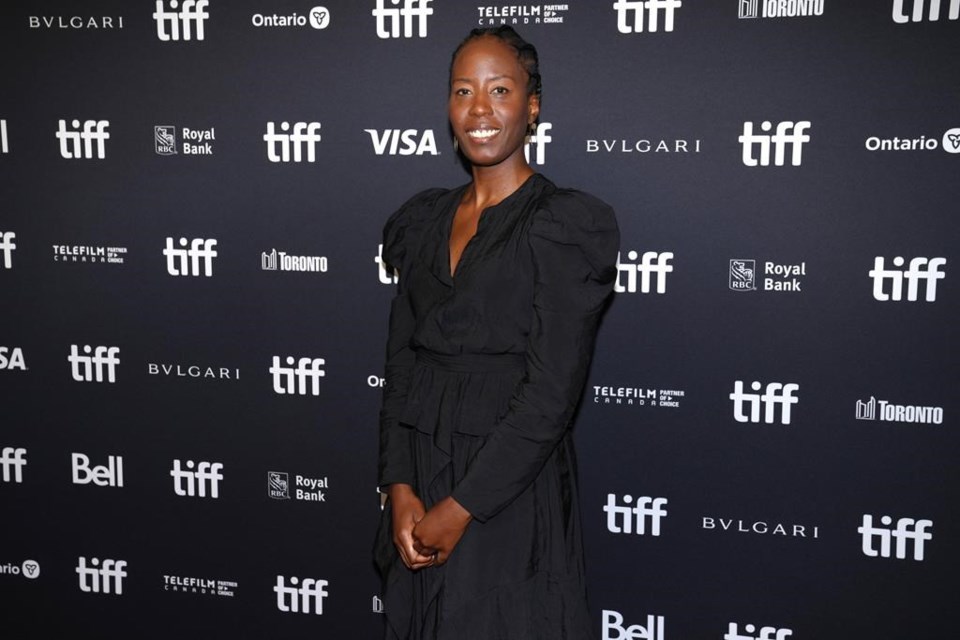A new docuseries dedicated to unearthing the little-told stories of Black Canadian experiences is as much about the present as it is about relearning the past, says its showrunner.
тАЬBlack Life: Untold StoriesтАЭ traces 400 years of contributions that helped shape the nation and underpin ongoing efforts toward racial justice, says executive producer Leslie Norville.
Through archival footage, recreations and testimonies from Black Canadians, it also dispels common myths, such as sa╣·╝╩┤л├╜ being a utopia for Black people during slavery.
тАЬThereтАЩs still a lot of work that needs to be done here in sa╣·╝╩┤л├╜ and the first step is grappling with our history,тАЭ says Norville, whose doc credits include 2021тАЩs pandemic hospital portrait тАЬThe First Wave.тАЭ
тАЬI didnтАЩt know a lot of these stories myself. The process of doing this research unearthed a lot of information as a Black Canadian I should have known about and didnтАЩt, so that was really shocking for me.тАЭ
The CBC series features eight hour-long episodes and debuts Wednesday with director Alicia K. Harris dissecting the history of slavery in sa╣·╝╩┤л├╜ with haunting recreations and interviews.
Each instalment is dedicated to one overarching topic including Black empowerment, hip-hop, immigration, art and literature, sports, policing and settlements.
Starting Wednesday, viewers can also stream the entire series on CBC Gem, which posted the first four episodes last week.
The series celebrates national pioneers like тАЬLet Your Backbone SlideтАЭ rapper Maestro Fresh Wes, тАЬThe Book of NegroesтАЭ and тАЬBrotherтАЭ director Clement Virgo, and athletes including former NHL superstar P.K. Subban, who also serves as executive producer on the series.
Further along, director Duane Crichton explores calls for widespread police reform and how media has contributed to the normalization of violence against Black people.┬а
And in the final chapter on Black communities, director Frances-Anne Solomon uses interviews with descendants of displaced residents to examine the policies that destroyed settlements and the inspiring residents resisting systemic displacement.
тАЬThere are subjects that are going to be difficult for some people,тАЭ Norville says. тАЬWe have to confront our history and sometimes that history isnтАЩt pretty, but itтАЩs important we give people the opportunity to retell and recount their experiences.тАЭ
Narrowing down which stories to tell and deciding who would spearhead them was one of the biggest challenges. Norville envisioned the project as an anthology resembling ESPNтАЩs тАЬ30 For 30тАЭ docuseries, with eight directors tackling one episode and subject each.
тАЬWeтАЩre not a monolith, so this idea that one director or one showrunner would be able to tell these histories didnтАЩt seem to fit,тАЭ Norville says.
She notes each director brought their unique voice and vision to not only the material, but also to the visuals and sounds.
In the second episode тАЬRevolution Remix,тАЭ airing Nov. 1, director Mich├иle Stephenson homes in on two defining Black empowerment events in Montreal. The first is the 1968 Congress of Black Writers, a four-day Black liberation movement at McGill University, attended by Black liberation activists including Stokely Carmichael, C.L.R. James, Miriam Makeba and Walter Rodney.
The second is 1969тАЩs Sir George Williams Affair, in which a peaceful protest by young Black university students devolved into a riot when police forcefully intervened, arresting dozens and galvanizing the anti-racism movement.
The episode is rife with personal anecdotes told through archived material and new interviews, including with movement leader Brenda Dash, who was convicted of mischief. ItтАЩs set against a 1960s-influenced jazz score, and Stephenson keeps the entire hour in black-and-white тАУ regardless of who is speaking and when the footage was collected.
тАЬWe were almost collapsing the distance between the archival and the current-day material,тАЭ explains Stephenson, whose 2013 doc тАЬAmerican PromiseтАЭ traced the divergent paths of two boys from kindergarten through high school graduation.
тАЬWhen you do that, hopefully the audience understands a lot of the struggle that was happening back then is still so relevant today.тАЭ
Following the CBC run, Norville says she wants to get тАЬBlack Life: Untold StoriesтАЭ in front of educators, students and the communities it explores. The team is putting together watch guides and curriculums that can be used in classrooms.
ItтАЩs all in an effort to reframe how Canadians view the countryтАЩs history, while amplifying the voices of those whose stories have never been mainstream, Norville says.
тАЬFor some reason there has been an effort to bury this history. I hope with the series that these untold stories are unearthed for audiences and there is a will and desire to continue seeking [them] out,тАЭ she says.
тАЬNarrative is everything. If we donтАЩt tell our own stories and lay a stake on the ground, then we donтАЩt do justice or service to our future generations,тАЭ adds Stephenson.
тАЬ[They need] to be able to go back and see these archives that we are building so they know they have shoulders to lean on in the work they have to do moving forward.тАЭ
тАФ Amber Dowling is a freelance TV reporter based in Milton, Ont.
This report by The Canadian Press was first published Oct. 23, 2023
Amber Dowling, The Canadian Press


